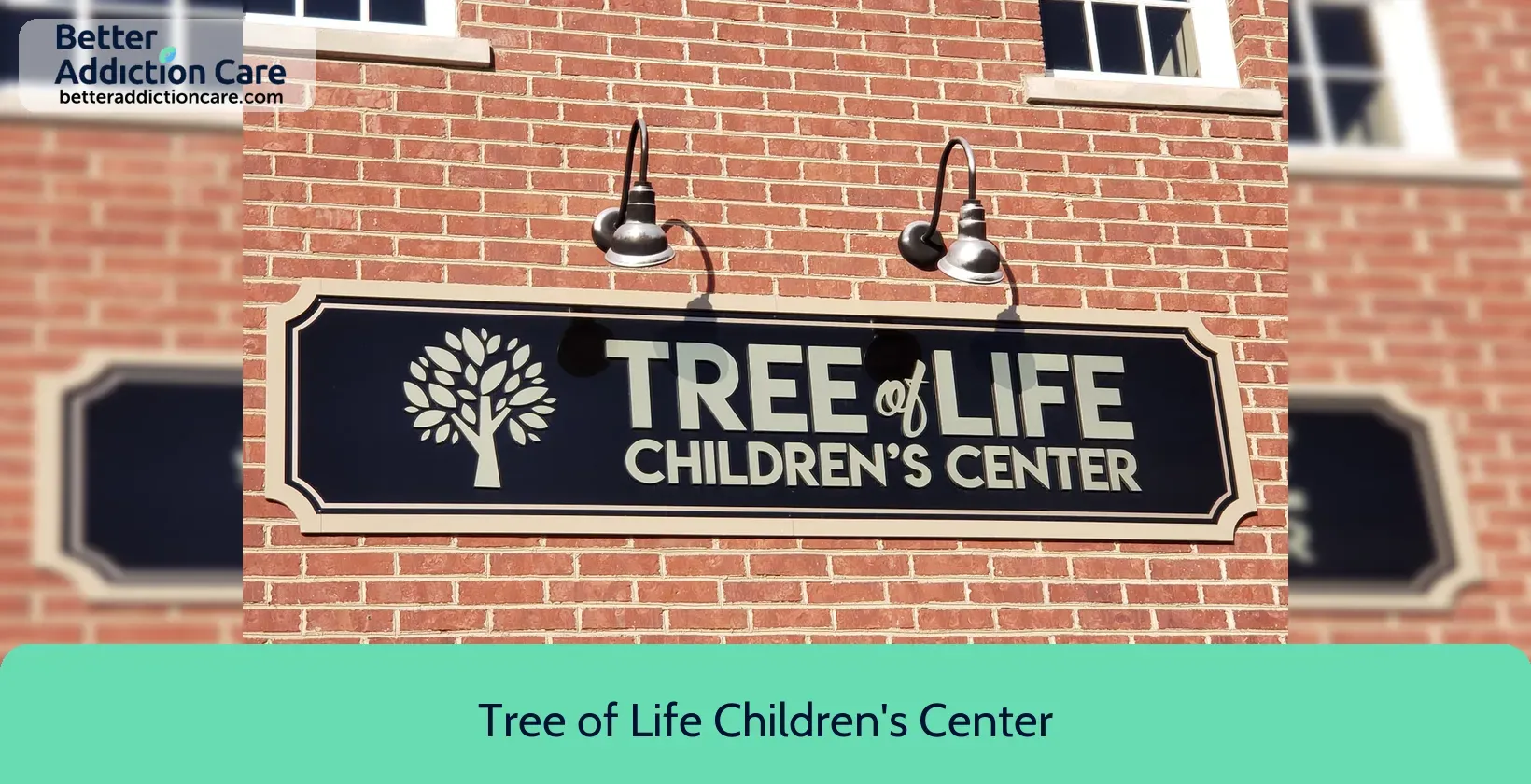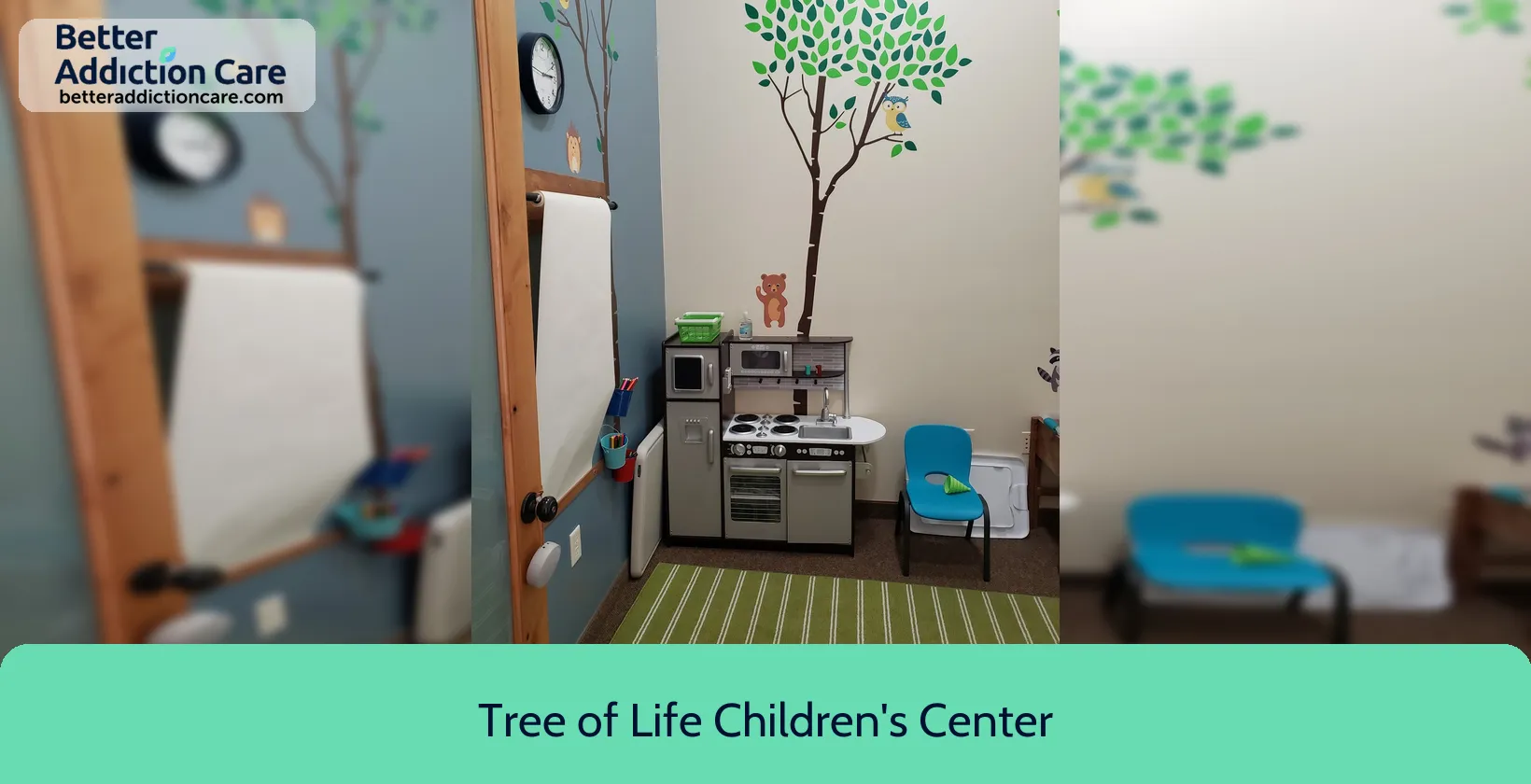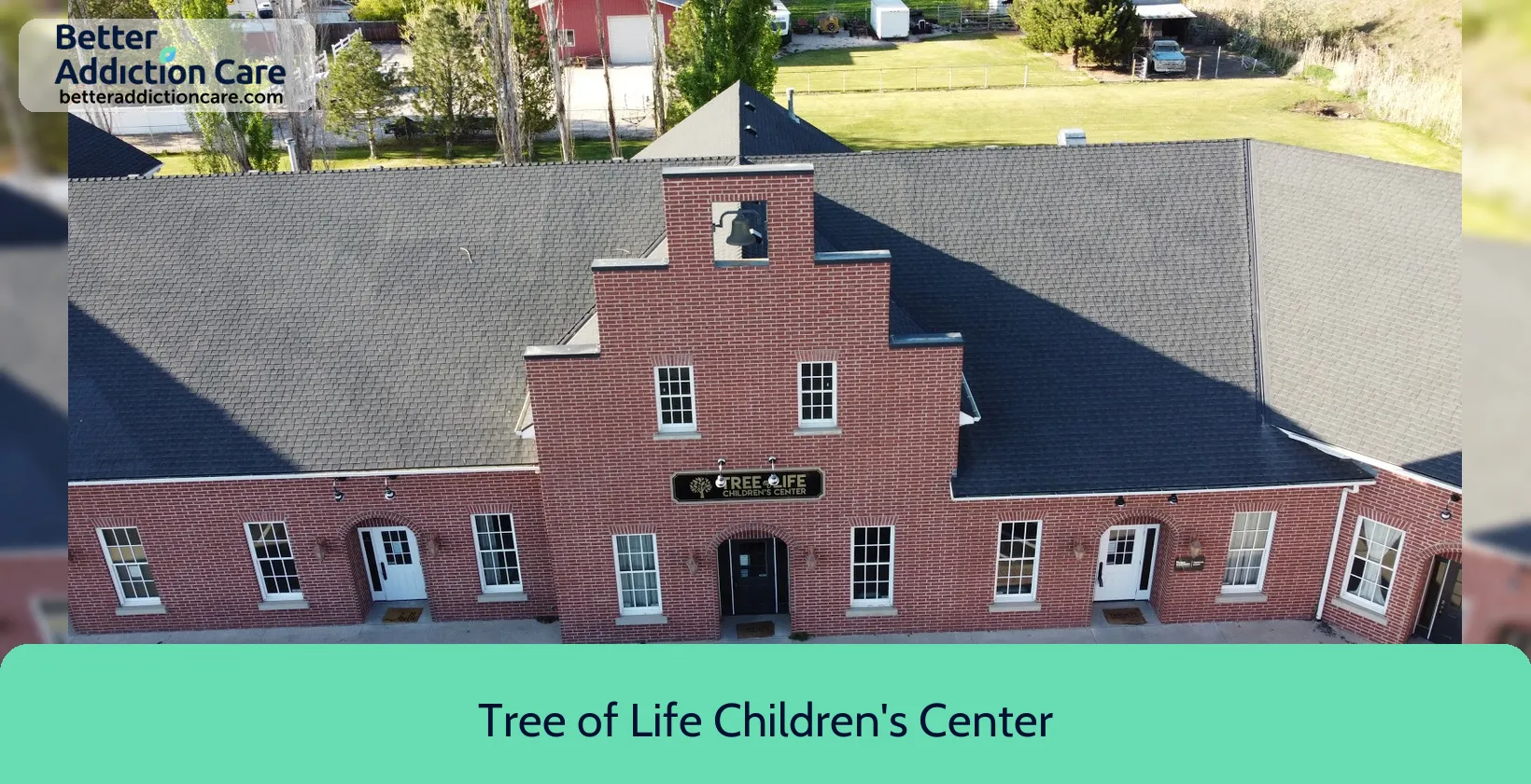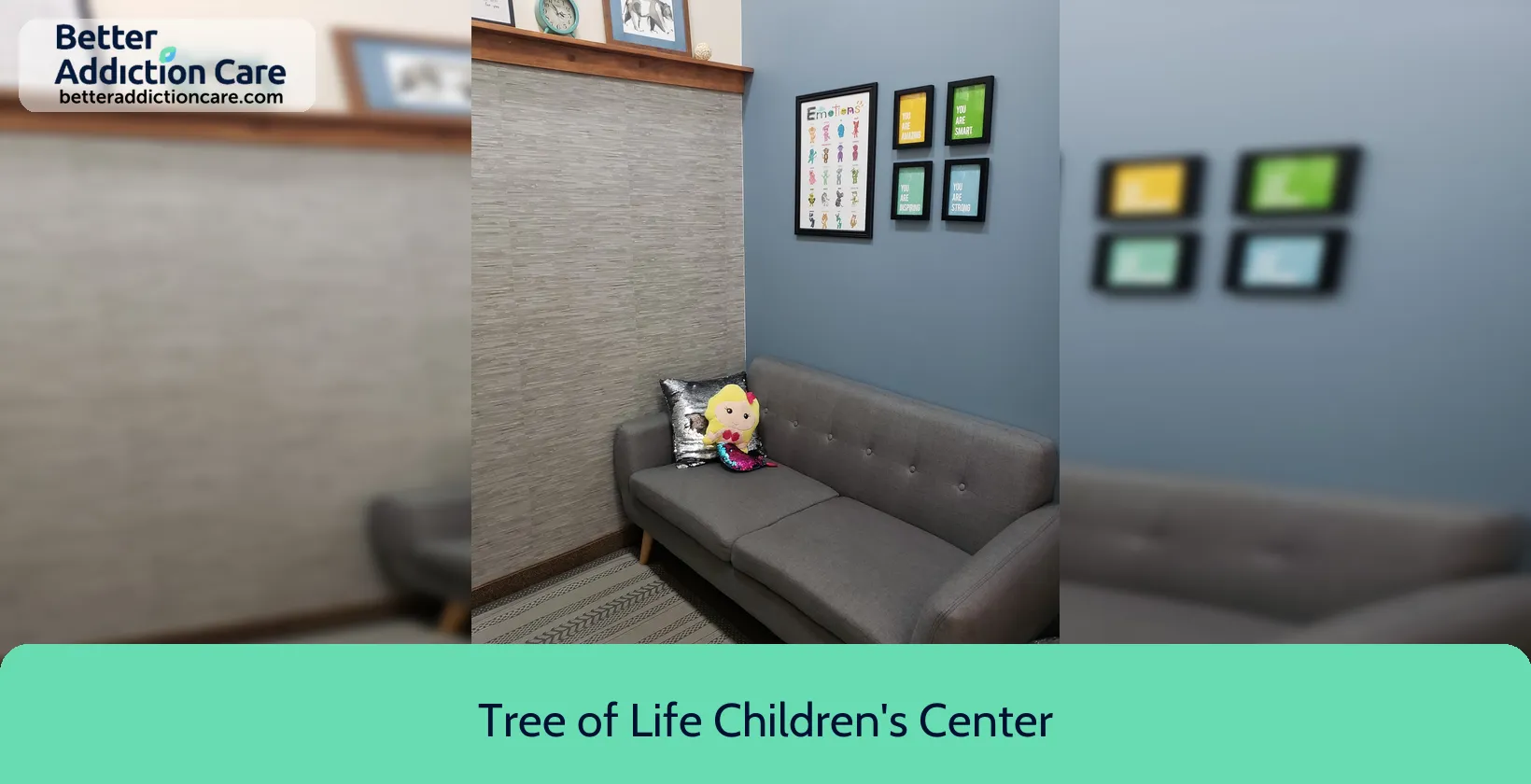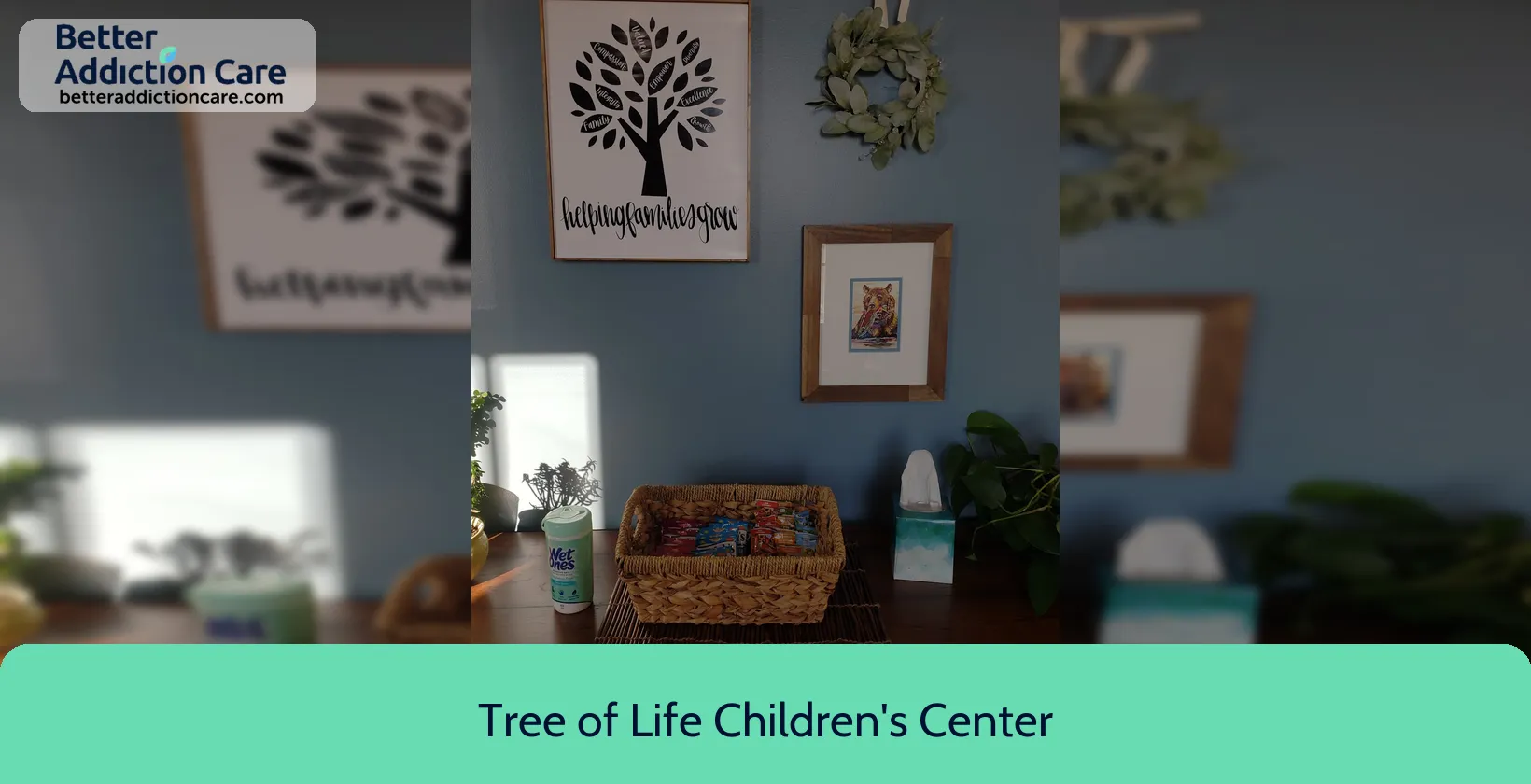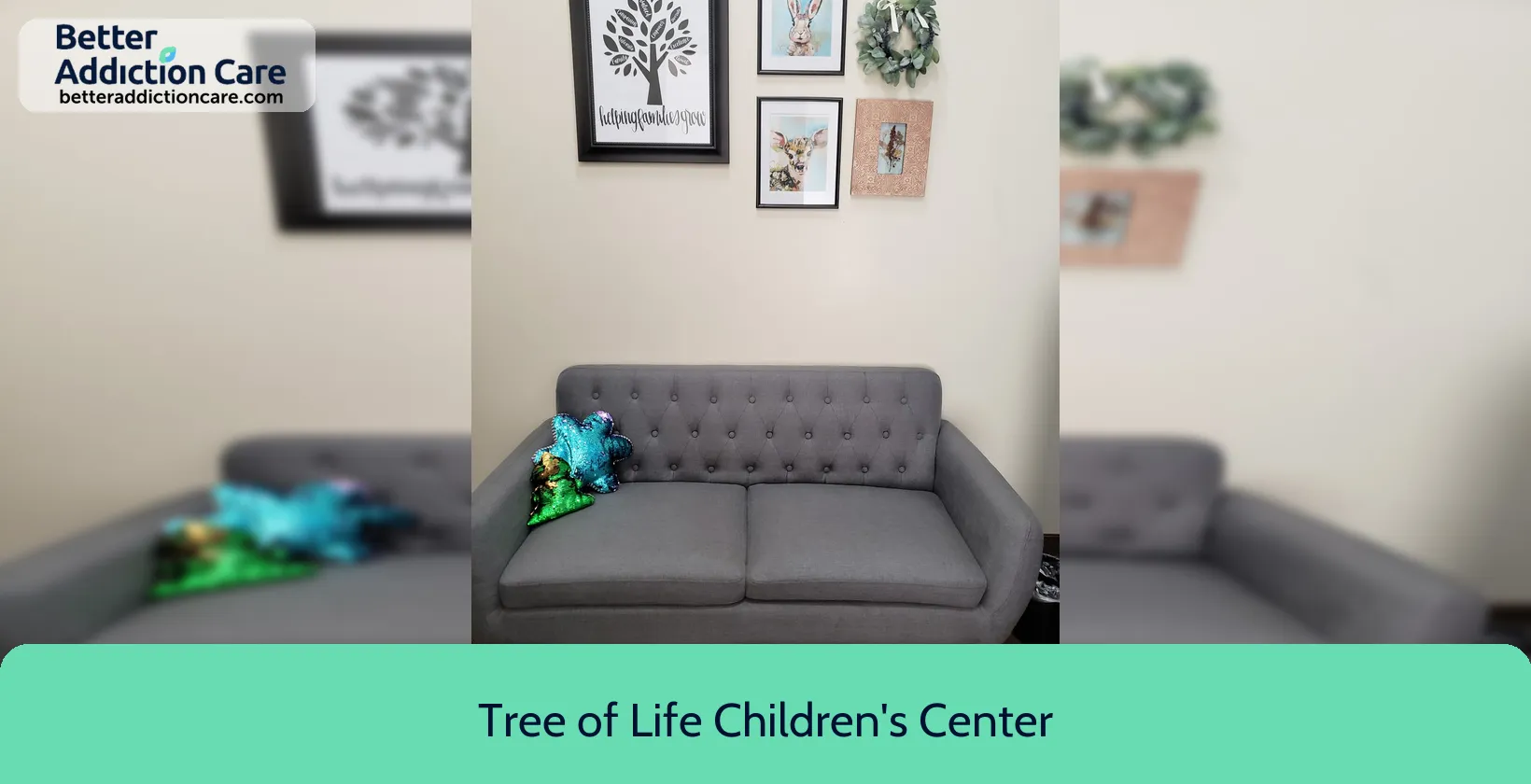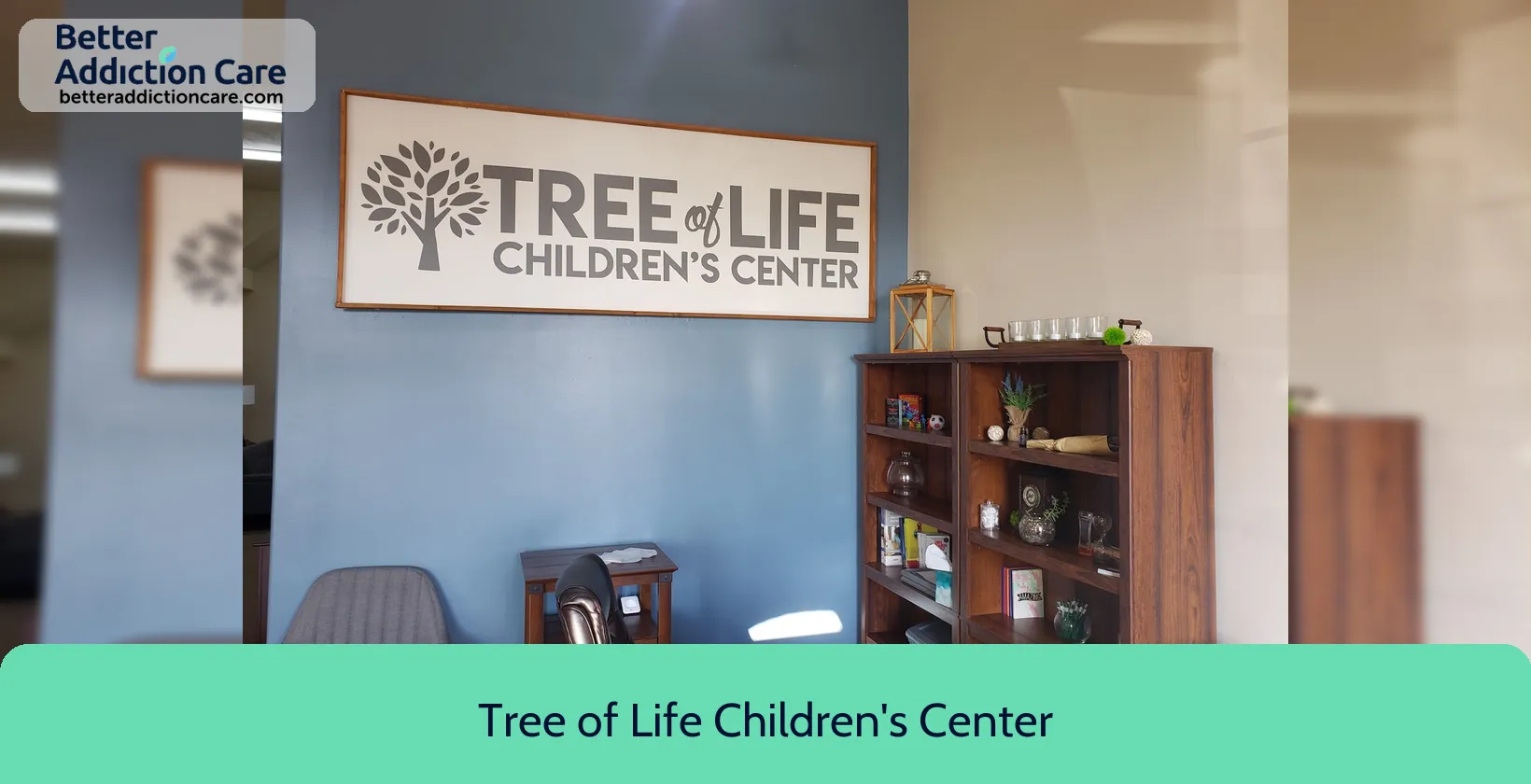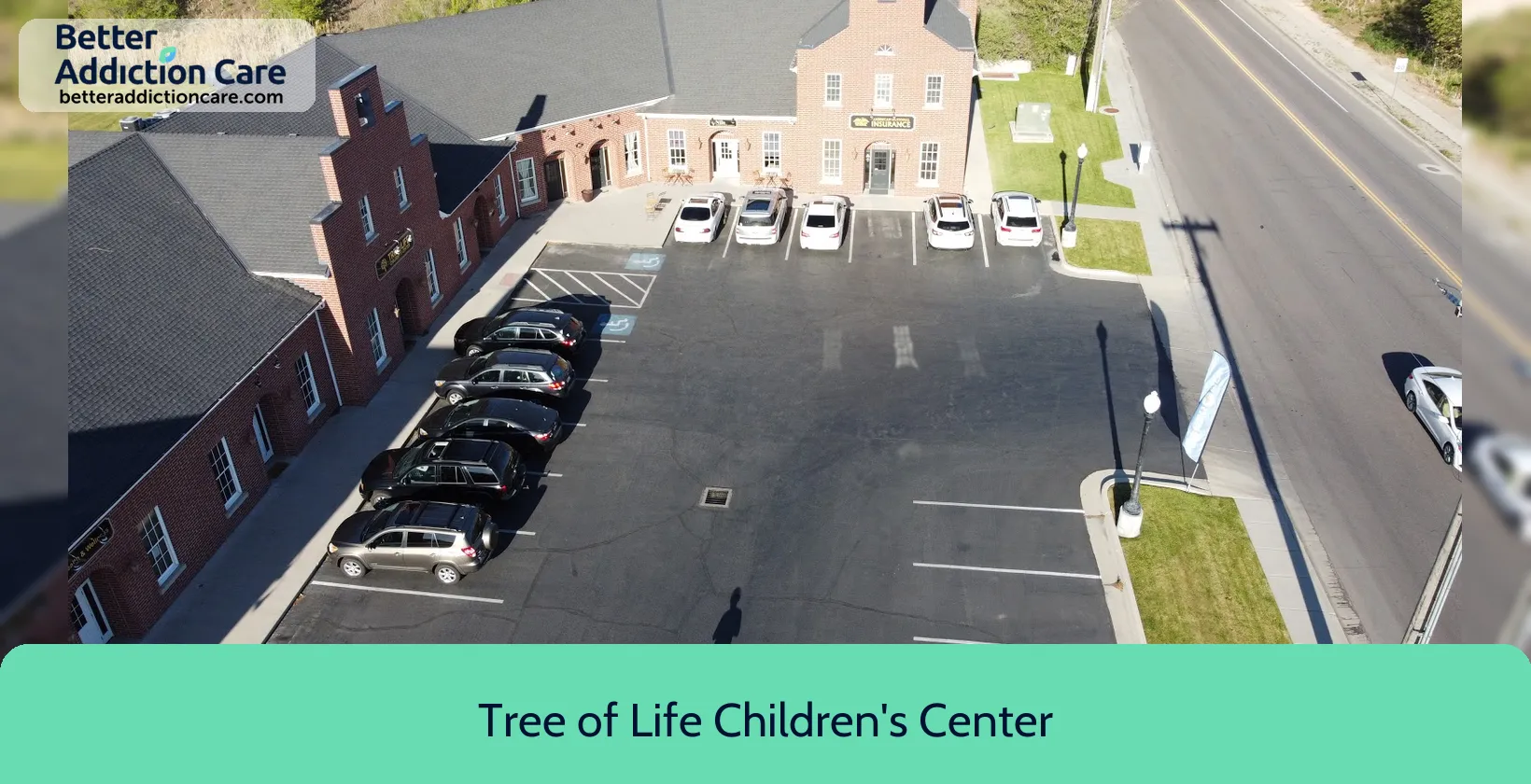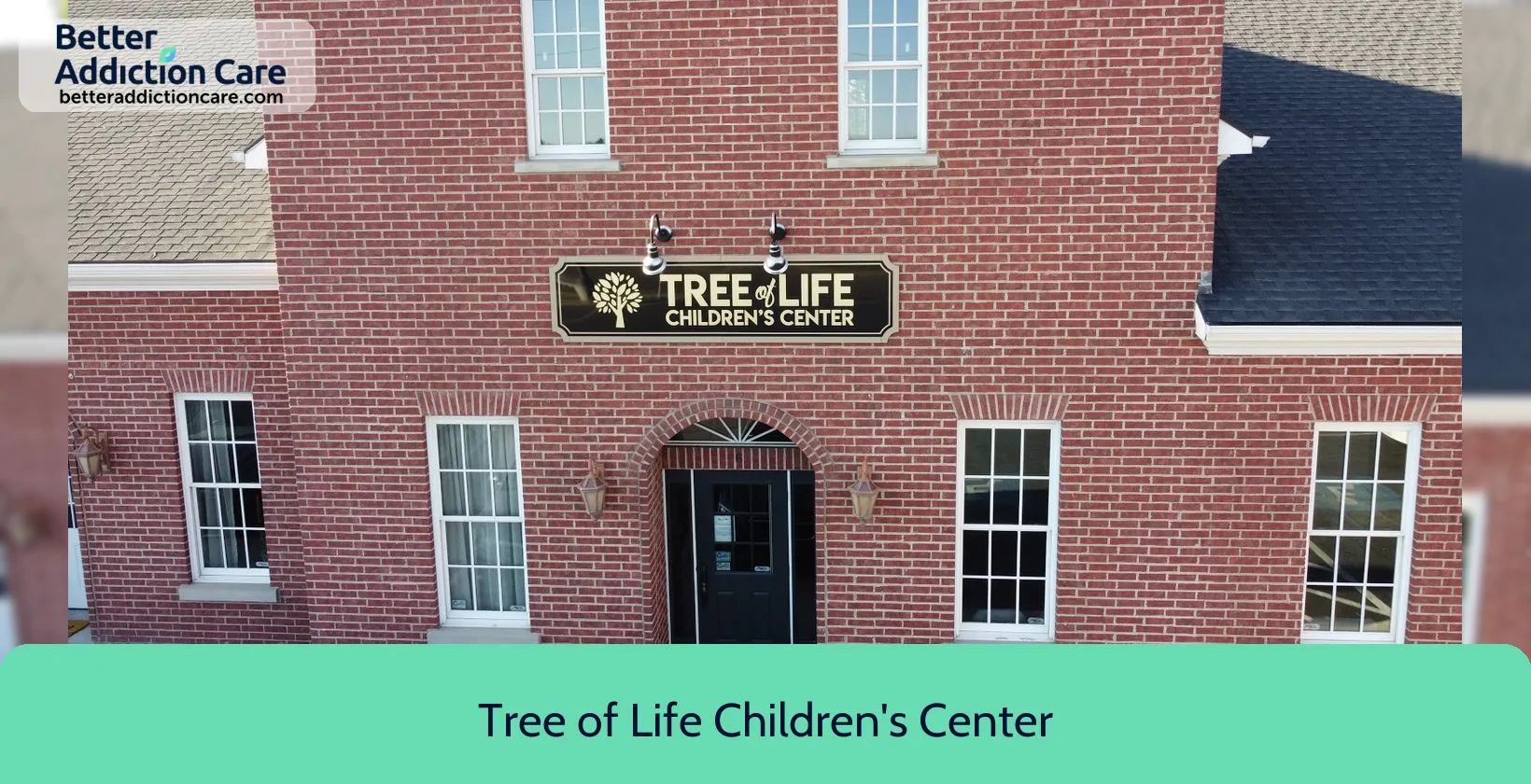Tree of Life Children's Center
Overview
Tree of Life Children's Center is a mental health treatment center for people seeking treatment near Weber County. As part of their treatment modalities for recovery, Tree of Life Children's Center provides cognitive behavioral therapy, dialectical behavior therapy, and activity therapy during treatment. Tree of Life Children's Center is located in Ogden, Utah, accepting cash or self-payment for treatment.
Tree of Life Children's Center at a Glance
Payment Options
- Cash or self-payment
- Private health insurance
Assessments
- Comprehensive mental health assessment
- Comprehensive substance use assessment
Age Groups
- Children/adolescents
- Young adults
- Adults
- Seniors
Ancillary Services
- Family psychoeducation
- Suicide prevention services
Highlights About Tree of Life Children's Center
6.59/10
With an overall rating of 6.59/10, this facility has following balanced range of services. Alcohol Rehabilitation: 8.00/10, Drug Rehab and Detox: 6.00/10, Insurance and Payments: 6.00/10, Treatment Options: 6.36/10.-
Alcohol Rehabilitation 8.00
-
Treatment Options 6.36
-
Drug Rehab and Detox 6.00
-
Insurance and Payments 6.00
Treatment At Tree of Life Children's Center
Treatment Conditions
- Mental health treatment
- Substance use treatment
- Co-occurring Disorders
Care Levels
- Outpatient
Treatment Modalities
- Cognitive behavioral therapy
- Dialectical behavior therapy
- Activity therapy
- Eye Movement Desensitization and Reprocessing therapy
Ancillary Services
Special Programs
- Children/adolescents with serious emotional disturbance (SED)
Contact Information
Read our Most Recent Article About Drug Addiction
DISCLAIMER: The facility name, logo and brand are the property and registered trademarks of Tree of Life Children's Center, and are being used for identification and informational purposes only. Use of these names, logos and brands shall not imply endorsement. BetterAddictionCare.com is not affiliated with or sponsored by Tree of Life Children's Center.
